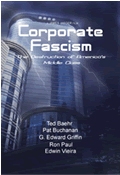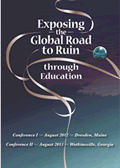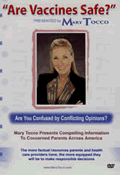TRUMP'S VP CHOICE AND ELIGIBILITY
By Nelson Hultberg
November 28, 2015
NewsWithViews.com
Patriots of America endorse Donald Trump for President. He transcends all other candidates. But if he wins the GOP nomination, an important question will be his running mate. Nominees often choose one of their strongest challengers especially if they come from a state with lots of electoral votes.
What are the home states of Trump’s strongest challengers? Ben Carson is from Florida (29 electoral votes), Marco Rubio is from Florida (29 votes), and Ted Cruz is from Texas (38 votes).
Also seeing that three 2016 candidates are sons of immigrant parents, the issue of eligibility for President and Vice-President becomes crucial. Numerous political activists out there maintain that Rubio, Cruz and Jindal are ineligible to be President (which makes them also ineligible to be Vice-President) because they are offspring of foreign born parents and therefore not “natural born citizens” as the Constitution requires.
There is no chance that Trump would choose Jindal for his VP; but he could possibly choose Rubio or Cruz. If this takes place, then we as conservatives need to have our facts straight on the issue of constitutional eligibility for the office. So let’s see if we can achieve some clarity on the question.
Natural Born in the Eyes of the Founders
The major point made by the "anti-eligible birthers" is that the Founding Fathers subscribed to the famous Vattel definition of "natural born citizen" from The Law of Nations. It required TWO natural parents in order for an offspring to be "natural born." Thus what the anti-eligible birthers are saying is that this was the "original intent" of the Founders, which makes it part of the Constitution.
There are those who claim Vattel is not important to the “anti-eligibility” case, but attorney Mario Puzzo, the foremost authority of anti-eligibility, makes liberal use of Vattel in his arguments on the case, as do most other authorities.
I certainly agree with the use of "original intent" in interpreting the Constitution. But did the Founders clearly state in wide agreement that they subscribed to Vattel? No, they did not, probably because there wasn't wide agreement on the question among them. This is the only way to determine "original intent," to glean from the published opinions of the Founders in such works as The Federalist Papers and their assorted personal writings throughout their lives.
What the "anti-eligible birthers" are doing, though, is assuming that since Vattel and The Law of Nations were popular at the time, this must have been the Founders intent. But this requires the Supreme Court to agree upon. And until that takes place, the question must be left up to the lower courts in our day to determine the issue.
Moreover, I would think that if there was wide agreement on the TWO parent Vattel requirement, the Founders would have written it into the Constitution and not made Article II, Section 1, Clause 5 so short and vague regarding what a "natural born citizen" actually was. This is a pretty important issue that is easy to be specific about if there was wide agreement on it. It merely requires usage of the words “BOTH parents” in an appropriate sentence if they wanted the Constitution to require the Vattel definition of a natural born citizen. So the Founders must have left it vague because they couldn't agree on the issue themselves.
Thus we are left with what the present legal consensus on the eligibility issue maintains. And, as we will soon see, it maintains that an individual must have ONE natural born citizen as a parent.
Also crucial to this dispute is that most anti-eligibility advocates rely on the case of Minor v. Happersett, 88 U.S. 162 (1875), which said that Virginia Minor was a citizen because her father and mother were citizens. But, and this is most important, it did not say that the Constitution requires BOTH parents to be natural born citizens in order for an offspring to be such. Chief Justice, Morrison Waite, stated the following in the case, provided by the Legal Information Institute at Cornell University Law School, p. 168,
"The Constitution does not, in words, say who shall be natural-born citizens. Resort must be had elsewhere to ascertain that."
Also Waite goes on to cite common law as his authority only to declare Minor to be a citizen because she is born of citizen parents. He does not say that this means the Constitution definitively declares that BOTH parents must be citizens in order for their offspring to be considered a “natural born citizen.” He merely says that Minor is obviously a citizen because she was born of citizen parents. But could someone be a natural born citizen when born of one citizen parent? This Waite leaves open. [Ibid., p.168]
Yet despite Chief Justice Waite stating that he and his court were not establishing that the Constitution requires BOTH parents to be citizens in order for their offspring to be a natural born citizen, “anti-eligibility” advocates continue to cite Minor v. Happersett as an example of the Supreme Court doing so.
Some “anti-eligibility” advocates even claim that the Supreme Court has defined “natural born citizen” according to Vattel in several cases, but they cite such cases only vaguely. They don’t provide specific sources with case / page numbers and actual wording of the judge involved that clearly states a natural born citizen must have BOTH parents as natural born. This is the crux of the issue. If the Supreme Court wants to determine the meaning of “natural born citizen” according to Vattel, then they must use the words “BOTH parents” as a requisite of the meaning in their ruling. Without these two words, there is no clarity, no certainty, and no legitimacy.
Thus the truth (until proven other wise) is that the Supreme Court has never ruled on the definition of "natural born citizen." So it is left up to the lower courts and legal minds of the country to offer opinion on its exact meaning. We have no certainty in other words.
Immigration and Nationality Act of 1952
But Article I, section 8, clause 4 of the United States Constitution does provide some legal clarity here. It gives the United States Congress the power to establish a uniform rule of citizenship. The Immigration and Nationality Act of 1952 sets forth in one of its passages the legal requirements for the acquisition of such citizenship:
"For persons born between December 24, 1952 and November 14, 1986, a person is a U.S. citizen if: 1) the person's parents were married at the time of birth, 2) one of the person's parents was a U.S. citizen when the person was born, 3) the citizen parent lived at least ten years in the United States before the child's birth, and 4) a minimum of 5 of these 10 years in the United States were after the citizen parent's 14th birthday." [Link]
After 1986, in sections 3 and 4, the ten years is reduced to five and the minimum of five years is reduced to two. Sections 1 and 2, however, remain the same.
Does this then mean that a person with ONE citizen parent is a “natural born citizen,” and therefore eligible to run for President? Yes, unless the Supreme Court declares the act to be unconstitutional, this is the law of the land.
It’s important to note that Chester A. Arthur met opposition on this very issue (U.S. mother and an Irish father), and he was not denied the Vice-Presidency in 1881 (and then the Presidency upon Garfield’s assassination) because of it. This sets a strong precedent.
Eligibility and Residency
But there is also another requirement of eligibility that needs to be considered; and that is residency. Does the candidate have to be born physically in America? Contrary to reams of argumentation out there, the answer is "No!" The Naturalization Act of 1790-1795 (passed three years after the Constitution was adopted and amended five years later) is the source for this. It states:
“Children of citizens of the United States, that may be born beyond the sea, or out of the limits of the United States, shall be considered as natural-born citizens.”
The amended act in 1795 used the term “citizen” rather than “natural born citizen” because the act is about the incoming immigrants of the day. This was the purpose of the amended act, to legislate laws for the swelling number of immigrants who were coming to America at the time. Thus the 1795 act replaces the 1790 act and applies to citizenship in a more generalized way. But it retains the previous act’s residency status for American citizens. Section 3 of the 1795 Act stipulates that:
“[T]he children of citizens of the United States born out of the limits and jurisdiction of the United States, shall be considered as citizens of the United States.”
Usage of the word “citizen” in the 1795 act instead of “natural born citizen” is of great importance. “Citizen” is the more generic or all-inclusive of the two terms. In other words, there are two types of citizen, “natural born” and “naturalized.” The Founders switched to the term, “citizen,” in the 1795 act on purpose to cover both kinds of citizens with certainty. In this way, there is no doubt. The offspring of both natural born and naturalized citizens, whether born in or outside American borders, are American citizens at birth. No naturalization act since then has changed this. Since the beginning of our country, the courts have determined that parentage, not residency, is the necessity.
Three Possible VP Candidates
As stated, Trump will surely not select Bobby Jindal as his running mate and may also wish to avoid Marco Rubio and Ted Cruz because of the risk involved over the eligibility question. The best choice for VP would, of course, be a solid conservative who is anti-amnesty; Trump’s operatives will certainly look for just such a candidate. But we must remember that electoral votes count heavily in a presidential nominee’s VP choice. Rubio comes from a state with 29 votes, and Cruz comes from a state with 38 votes. This may be persuasive to Trump.
Rubio and Jindal supporters claim that as anchor-babies, they are eligible under the Immigration and Nationality Act of 1952. But birthers are correct to declare such claims to be false because anchor-babies are not spawned by American citizens. Both Rubio and Jindal came from parents who were aliens, and thus they are not eligible to be President. Cruz, however, is eligible because one of his parents (his mother) was a natural born citizen when he was born.
|
|
What then are we to conclude? In today’s collectivist legal system, the eligibility issue is never going to be clearly or fairly adjudicated because statist mentalities dominate the arena. Thus we, as conservatives, need to be very careful regarding the “eligibility issue” in 2016. We do not want to be playing the role of “spoilers” of the first serious patriot challenge of Washington’s Darth Vaders in 35 years? Donald Trump is the only candidate out there with a chance of stopping the runaway freight train of government growth and CFR domination of our lives. It would be a shame to see this sabotaged by the controversial thinking that prevails today on the subject of presidential eligibility.
© 2015 Nelson Hultberg - All Rights Reserved
Nelson Hultberg is a freelance writer in Dallas, Texas and the Director of Americans for a Free Republic. A graduate of Beloit College in Wisconsin, his articles have appeared over the past 25 years in such publications as The American Conservative, Insight, Liberty, The Freeman, The Dallas Morning News, and the San Antonio Express-News, as well as on numerous Internet sites such as Capitol Hill Outsider, The Intellectual Conservative, Popular Liberty, and The Daily Bell. He is the author of The Golden Mean: Libertarian Politics, Conservative Values.
Email: NelsonHultberg@afr.org
Website: www.afr.org




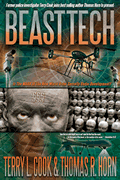
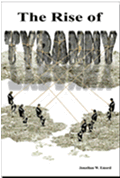

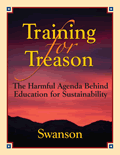


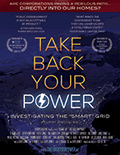




 Share
This Article
Share
This Article
